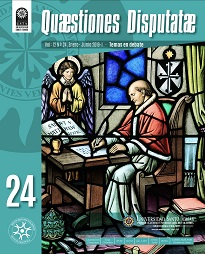Improve the reading comprehension of english with metacognitive strategies using TIC tools: case of first semester students of dentistry from the cooperative university of colombia
Main Article Content
Abstract
The learning of a second language in the knowledge society, where most of the information is found everywhere, has become more than a necessity in an imperative, that is to say, a fundamental part of the knowledge to be acquired, taking into account that the information travels through the network in any language and at speeds that were unthinkable a few years ago. The objective of this article is to specify in detail the final results of the research project which shows the possibility that first-semester students of dentistry of the Cooperative University of Colombia improve their process of reading comprehension through the use of metacognitive strategies using learning tools mediated by ICT. The study was based on the possibility of constructing questionnaires where reading comprehension is evident and then giving them some metacognitive learning strategies using ICT tools.
Article Details
How to Cite
Canoles-Vásquez, J. C., & Cristancho, M. del C. (2019). Improve the reading comprehension of english with metacognitive strategies using TIC tools: case of first semester students of dentistry from the cooperative university of colombia. Quaestiones Disputatae: Temas En Debate, 12(24), 84-96. Retrieved from http://revistas.ustatunja.edu.co/index.php/qdisputatae/article/view/1813
Section
Artículos Vol. 12
De acuerdo a la Licencia Creative Commons Atribución-No Comercial-Sin Derivar 4.0 Internacional, se autoriza leer, descargar, copiar, distribuir, imprimir, buscar o enlazar los textos completos de estos artículos, siempre y cuando se conceda el crédito a los autores de los textos y a la Revista Quaestiones Disputatae: temas en debate, como fuente de publicación original. No se permite el uso comercial de copia o distribución de contenidos, así como tampoco la adaptación, derivación o transformación alguna de estos sin la autorización previa de los autores y de la dirección de Quaestiones Disputatae: temas en debate.

Esta obra está bajo una licencia de Creative Commons Reconocimiento-NoComercial-SinObraDerivada 4.0 Internacional.
References
Adams, M.J., & Collins, A. (1985). A schema theoretic view of reading. In H. Singer & R.B.
Ruddell (Eds.), Theoretial models and processes of reading. Newark: Del. IRA.
Alonso-García,, S., Morte-Toboso, E., & Almansa-Núñez, S. (2015). Redes sociales aplicadas a la educación: EDMODO. Edmetic, 88-111.
Buxarrais, M. (2010). Uso Educativo de las redes sociales y participación social. Ponencia. Pamplona.
Díaz Camacho, J. (2011). La metacognición en el proceso de lectura. Areté, 20-38.
Flavell, J. (1976). Metacognitive aspects of problem solving. Resnick.
Hernández Sampieri, R., Fernández Collado, C., & Baptista, P. (2010). Metodología de la investigación. Mexico: MacGraw-hill.
Klimenko, O., & Alvares, J. (2009). Aprender cómo aprendo: la enseñanza de estrategias metacognitivas. educación y educadores, 11-28.
Landaverde, & Trejo, J. (2005). MODELO DIDÁCTICO MEDIACIONAL PARA PROMOVER EL APRENDIZAJE DE SEGUNDAS LENGUAS. Revista Iberoamericana de Educación a Distancia, 67-82.
Ministerio de Educación. (2013). Datos generales 2013. Bogotá. Obtenido de https://www.mineducacion.gov.co/sistemasdeinformacion/1735/articles-254702_archivo_pdf_estadisticas_2013.pdf
Morales-Pacavita, O. (2016). Desarrollo de competencias tecnológicas en docentes. Una mirada desde la Andragogía. quaest. disput, 9 (18), 229-250
Muñoz-Muñoz, A., & Ocaña de Castro, M. (2017). Uso de estrategias metacognitivas para la comprensión textual. Cuadernos de Lingüística Hispánica, 223-244. doi:doi: http://dx.doi.org/10.19053/0121053X.n29.2017.5865
O’Neil, H., & Abedi, J. (1996). . Reliability and validity of a state metacognitive inventory: Potential for alternative assessment. The Journal of Educational Re-search, 234-245.
Sandhusen, R. (2002). Mercadotecnia. México: CECSA. Santiesteban, N. (2012). Didáctica de la lectura. Madrid: EUMED.
Solé, I. (1987). La posibilidad de un modelo teórico para la enseñanza de la comprensión lectora. Infancia y aprendizaje, 1-13.
Solé, I. (2000). Estrategias de Lectura. Barcelona: Graó.
Villalba Varona, A. (12 de 08 de 2007-2008). Recursos de la Web 2.0 para la Enseñanza de Idiomas. Obtenido de http://ced.cele.unam.mx: http://ced.cele.unam.mx/ciberestrategias/wp-content/uploads/2009/11/villalba_web2.pdf
Wallace, C. (1992). Reading. Oxford: Oxford University press
Ruddell (Eds.), Theoretial models and processes of reading. Newark: Del. IRA.
Alonso-García,, S., Morte-Toboso, E., & Almansa-Núñez, S. (2015). Redes sociales aplicadas a la educación: EDMODO. Edmetic, 88-111.
Buxarrais, M. (2010). Uso Educativo de las redes sociales y participación social. Ponencia. Pamplona.
Díaz Camacho, J. (2011). La metacognición en el proceso de lectura. Areté, 20-38.
Flavell, J. (1976). Metacognitive aspects of problem solving. Resnick.
Hernández Sampieri, R., Fernández Collado, C., & Baptista, P. (2010). Metodología de la investigación. Mexico: MacGraw-hill.
Klimenko, O., & Alvares, J. (2009). Aprender cómo aprendo: la enseñanza de estrategias metacognitivas. educación y educadores, 11-28.
Landaverde, & Trejo, J. (2005). MODELO DIDÁCTICO MEDIACIONAL PARA PROMOVER EL APRENDIZAJE DE SEGUNDAS LENGUAS. Revista Iberoamericana de Educación a Distancia, 67-82.
Ministerio de Educación. (2013). Datos generales 2013. Bogotá. Obtenido de https://www.mineducacion.gov.co/sistemasdeinformacion/1735/articles-254702_archivo_pdf_estadisticas_2013.pdf
Morales-Pacavita, O. (2016). Desarrollo de competencias tecnológicas en docentes. Una mirada desde la Andragogía. quaest. disput, 9 (18), 229-250
Muñoz-Muñoz, A., & Ocaña de Castro, M. (2017). Uso de estrategias metacognitivas para la comprensión textual. Cuadernos de Lingüística Hispánica, 223-244. doi:doi: http://dx.doi.org/10.19053/0121053X.n29.2017.5865
O’Neil, H., & Abedi, J. (1996). . Reliability and validity of a state metacognitive inventory: Potential for alternative assessment. The Journal of Educational Re-search, 234-245.
Sandhusen, R. (2002). Mercadotecnia. México: CECSA. Santiesteban, N. (2012). Didáctica de la lectura. Madrid: EUMED.
Solé, I. (1987). La posibilidad de un modelo teórico para la enseñanza de la comprensión lectora. Infancia y aprendizaje, 1-13.
Solé, I. (2000). Estrategias de Lectura. Barcelona: Graó.
Villalba Varona, A. (12 de 08 de 2007-2008). Recursos de la Web 2.0 para la Enseñanza de Idiomas. Obtenido de http://ced.cele.unam.mx: http://ced.cele.unam.mx/ciberestrategias/wp-content/uploads/2009/11/villalba_web2.pdf
Wallace, C. (1992). Reading. Oxford: Oxford University press

